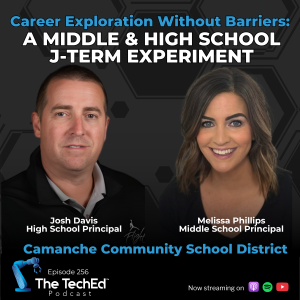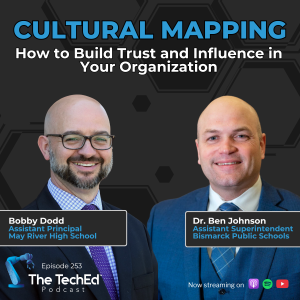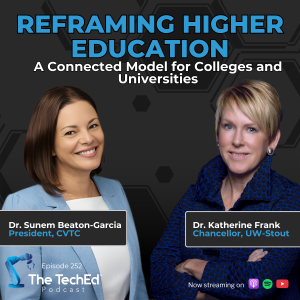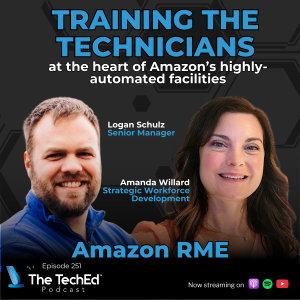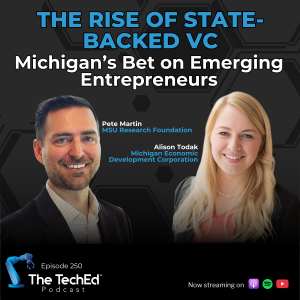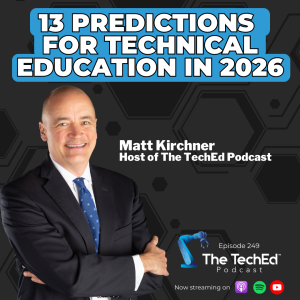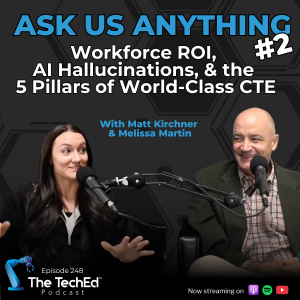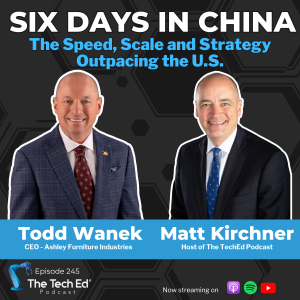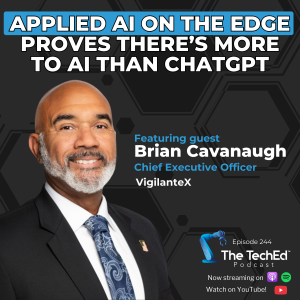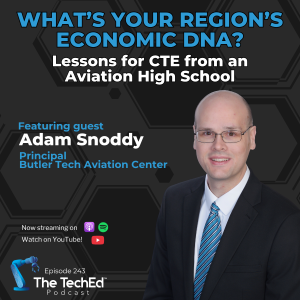Love It or Hate It: A Surprisingly Human (And Very Fun) Conversation About Math
Dr. Jordan Ellenberg, Mathematics Professor at the University of Wisconsin
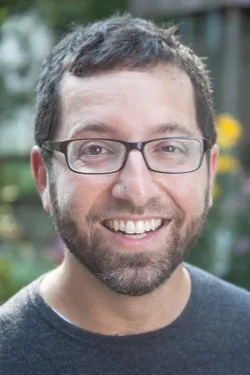 What happens when a world-class mathematician meets ’80s college radio, Bill Gates’ top-10 favorite books, and a host with an algebra redemption arc? A surprisingly funny, fast-moving conversation. Dr. Jordan Ellenberg—John D. MacArthur Professor of Mathematics at UW–Madison and author of How Not to Be Wrong—swaps stories about The Housemartins, consulting on NUMB3RS (yes, one of his lines aired), and competing at the International Mathematical Olympiad. There’s a lot of laughter—and a fresh way to see math as culture, craft, and curiosity.
What happens when a world-class mathematician meets ’80s college radio, Bill Gates’ top-10 favorite books, and a host with an algebra redemption arc? A surprisingly funny, fast-moving conversation. Dr. Jordan Ellenberg—John D. MacArthur Professor of Mathematics at UW–Madison and author of How Not to Be Wrong—swaps stories about The Housemartins, consulting on NUMB3RS (yes, one of his lines aired), and competing at the International Mathematical Olympiad. There’s a lot of laughter—and a fresh way to see math as culture, craft, and curiosity.
But we also get practical about math education. We discuss the love/hate split students have for math and what it implies for curriculum design; a century of “new” methods (and if anything is truly new); how media tropes (Good Will Hunting, Hidden Figures, A Beautiful Mind) shape student identity in math; soccer-drills vs scrimmage as a frame for algebra practice and “honest” applications; grades as feedback vs record; AI shifting what counts as computation vs math; why benchmarks miss the point and the risk of lowering writing standards with LLMs; and a preview of Jordan’s pro-uncertainty thesis.
Listen to Learn:
- A better answer to “Why am I learning this?” using a soccer analogy
- The two big off-ramps of math for students, and tactics that keep more students on board
- How to replace the “born genius” myth with iterative, cooperative problem-solving—and classroom moves that make it real.
- When a grade is a record vs. a motivator
- What AI will and won’t change in math class, and why “does it help create new math?” matters more than benchmark scores.
3 Big Takeaways from this Episode:
1. Math mastery comes from practice plus meaning, not a “born genius.” Jordan puts it plainly: “genius is a thing that happens, not a kind of person,” and he uses the soccer drills vs scrimmage analogy to pair targeted practice with real tasks, with algebraic manipulation as a core high school skill. He urges teachers to “throw a lot of spaghetti at the wall” so different explanations land for different students, because not all students learn the same way.
2. Students fall off at fractions and Algebra I. How do we pull them back? Jordan names those two moments as the big off-ramps and points to multiple representations, honest applications, and frequent low‑stakes practice to keep kids in. Matt’s own algebra story about making a deal with his math teacher to improve his grades helped him focus and improve.
3. AI will shift our capabilities and limits in math, but math is still a human task. Calculators and Wolfram already do student‑level work, and Jordan argues benchmarks like DeepMind vs the International Mathematical Olympiad matter less than whether tools help create new mathematics. He also warns against letting LLMs lower writing standards and says the real test is whether these systems add substantive math, not just win contests.
Resources in this Episode:
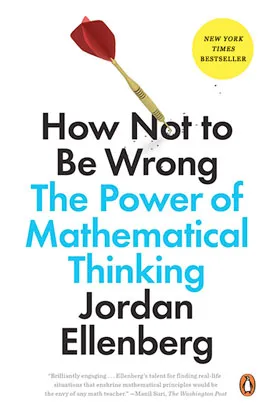 Visit Jordan Ellenberg's website! jordanellenberg.com
Visit Jordan Ellenberg's website! jordanellenberg.com- Read How Not to Be Wrong: The Power of Mathematical Thinking
Other resources:
- Read Jordan's other books, Shape: The Hidden Geometry of Information, Biology, Strategy, Democracy and Everything Else and the novelThe Grasshopper King
- See Jordan's page on the University of Wisconsin Math Department site
- International Mathematical Olympiad
- Bill Gates' review of How Not to Be Wrong: "How math secretly affects your life"
- "The High-Schoolers Who Just Beat the World’s Smartest AI Models" - Ben Cohen, The Wall Street Journal
- Listen to The Housemartins London 0 Hull 4 album on Spotify
- Article by Jordan in the Washington Post: "Want kids to learn math? Level with them that it's hard."
Connect with Jordan Ellenberg on Social Media:
You might also like...
What our listeners are saying
The #1 podcast in TechEd
This podcast is a great resource to keep up with all the exciting changes in the world of manufacturing and technology. Get key insight from industry leaders from the Midwest and around the globe that you won’t find anywhere else. A must listen for anyone interested in how technology is changing the way businesses operate.
The pulse of Industry 4.0
This podcast has its fingers on the pulse of Industry 4.0, and Matt K. is a phenomenal guide, traversing the complexities of manufacturing and education in one forum. A+ work all around!
Compelling
I find Matt's approach to be very compelling. He brings both perspectives, industry AND education. He doesn't hold back on what he thinks is important...
New and Exciting Content With Every Episode
I really enjoy listening to this podcast when I'm driving or have a free moment. Each episode brings a new guest with a fresh and exciting perspective of both education and the workforce!
I needed this podcast back when I was in High School!
Such great content that deserves more attention at all level of education. I wish I heard some of these episodes when I was navigating my own career path. Incredible guests, with incredible messages to share. Keep up the great work!
Inspiring topics featuring inspiring leaders
I’ve listened to most of your weekly podcasts and enjoy listening to the stories and conversations that feature business and education leaders from Wisconsin. Kudos to you for creating a platform that presents ideas and success stories that are important to Career and Technical Education teachers and leaders.
Best Career and TechEd Podcast
There are a lot of education podcasts out there. This is the only one that really focuses on bringing together voices from inside AND outside education and focuses specifically on STEM and Career/Tech Ed. This is a great podcast for anyone in education and also for anyone who employs STEM or skilled-trades talent in their workforce.
Filling in Gaps
This show spotlights a large and growing aspect of education that doesn’t get enough attention. Practical and technical education is a field growing exponentially. This podcast Highlights many of the facets of this diverse field.
Fantastic Topics on the Future of Industry
These podcasts are the best for learning about current and future technology. The stories are great. We need more of these interviews.
